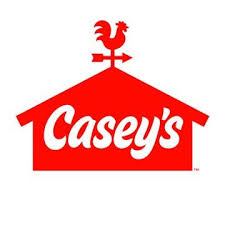DART commission votes to hire consultant for Reimagine DART system redesign


The Des Moines Area Regional Transit Authority’s board of commissioners voted Tuesday to hire a consultant to lead the agency’s effort to reimagine public transit in the metro and become more sustainable for the next decade and beyond.
The DART board voted to award a contract to consulting firm Jarrett Walker + Associates in partnership with Transpo Group for the DART network redesign project. The agreement calls for DART to pay the firm up to $870,000, with $600,000 coming from the agency’s capital budget — made up primarily of federal dollars — and $270,000 from grants from the Principal Foundation and Polk County.
The decision comes as DART is in talks with its regional members over funding and levels of service it provides to those communities.
DART currently serves Altoona, Ankeny, Bondurant, Clive, Des Moines, Grimes, Johnston, Pleasant Hill, Polk County, Urbandale, West Des Moines and Windsor Heights. But Grimes notified DART in November 2023 of its decision to leave the public transit agency, with service to Grimes ending in June 2025.
Last month, the city of Pleasant Hill voted to cut ties with DART, effective June 2026, citing low ridership and a high cost of providing service.
In comments made before the vote to award the consulting contract, DART CEO Amanda Wanke said addressing concerns over costs for providing service to suburban members, and improvement to express routes are reasons why DART has undertaken the Reimagine DART effort.
She said the transit agency is having “some really difficult conversations” with member communities in hopes of finding consensus on what individual community members want and need from public transit.
Finding consensus is difficult, and the Community Foundation of Greater Des Moines has offered to mediate the conversations, Wanke said.
“I do know after further conversations with executive committee members there isn’t consensus to move forward with mediation at this point,” she said.
Seven regional DART member communities sent a letter to the city of Des Moines last month giving the city until Dec. 1 to commit to requirements of a new governance structure and funding formula that was approved by DART members in 2021 to make the representation and funding more equitable.
In the letter, the cities outline what they say are inequities in the funding formula.
Before the new funding structure, Des Moines received 74% of the services and paid 33% of the costs, the letter states. Collectively, the other member communities received 26% of the services while paying 67% of the costs.
The letter says the new funding formula increased Des Moines’s contribution to 49% of the funding while reducing suburban communities’ contribution to 51%. The cities accuse the city of Des Moines of backtracking on its commitment, creating a $7.6 million deficit.
In the letter, signed by the mayors of West Des Moines, Urbandale, Clive, Johnston, Windsor Heights, Altoona and Bondurant, the cities say if they don’t receive a commitment from Des Moines, they may be forced to withdraw from DART and explore options for providing service on their own.
Wanke addressed questions about why DART is moving forward with its system redesign when there is uncertainty about regional membership.
“We really do need to move forward because no matter who’s a part of DART and what it looks like, system redesign work needs to happen,” she said. “We have some routes that are working and some that aren’t. Consultants have told us many times that we’re on a very tight timeline to get what we want done and we have the funding to do it, so that’s why we’re recommending moving forward with Reimagine DART.”
That process will continue through December 2025, when planning for the fiscal year 2027 budget begins.
“We have a very solid budget for June 2025, and we have 20 months ahead of us to figure this out and I’m very optimistic we can get there,” Wanke said at Tuesday’s meeting.
Some of the pressure to make service cuts of up to 20% or more was released when the Des Moines Area Metropolitan Planning Organization gave the transit agency $3.6 million to help maintain its current level of service for the next two years. That, along with the city of Des Moines’ decision to contribute $1.5 million for fiscal year 2025 and $2 million in fiscal year 2026, eased the pressure to make cuts in services.
But DART leaders still had to find ways to trim expenses starting July 1, including eliminating Wi-Fi on buses and reducing hours of customer service. DART also eliminated four administrative positions and reduced small costs in professional services and memberships the organization may belong to. In all, the cuts totaled nearly $1 million.
DART provides about 3.2 million rides a year, with about 60% of DART riders using the service to get to and from work.
Currently, about 62% of DART’s $42 million operating budget comes from property taxes. With so much of its revenue tied to property taxes, DART finds its hands tied because the property tax levy for DART is capped at 95 cents per $1,000 valuation.
Wanke said at Tuesday’s meeting that an Oct. 28 work session for the board will try to answer as many questions as possible about what the ripple effects will be with member community withdrawal.
She said major service changes take 18 months to implement. Paratransit service is also a consideration because federal law requires paratransit service to be available within three-quarters of a mile of a fixed route.
“So fixed routes and paratransit go hand in hand, so there’s going to be decisions we need to make around that,” Wanke said.
She said it’s important to know who will be part of the system to allow DART to “plan the right system and adapt and think about the future.”
“And constant change makes it hard for us to focus on providing the best service possible,” Wanke said.
Erin Hockman, chief strategy officer for DART, said without consensus on the type of a transit service DART should provide, “it’s hard for DART staff to design a service that member communities will be satisfied with.”
“That’s really why the goal of getting consensus on funding and service levels through Reimagine DART is so important,” Hockman said at Tuesday’s meeting.
Six consultant proposals for Reimagine DART were received. All six were reviewed, with the top three being brought in for interviews, Hockman said.
She said staff is recommending a second request for proposals be issued to look at updates to DART’s fare policy, and that that process be staggered from decisions made about system redesign through Reimagine DART.
Board chairman Russ Trimble said DART is working to solve some of the issues it’s facing and move forward with the best service it can for the region.
“We’re all staying as positive as we can to come up with a solution,” said Trimble, who is also the mayor of West Des Moines. “These are not easy times right now at DART for anybody. For riders, for staff, for the commissioners. Hang on, we’re trying to get there. Riders, I know you have a lot of anxiety right now with what’s going on. We really do want to solve this.”

Michael Crumb
Michael Crumb is a senior staff writer at Business Record. He covers real estate and development and transportation.










